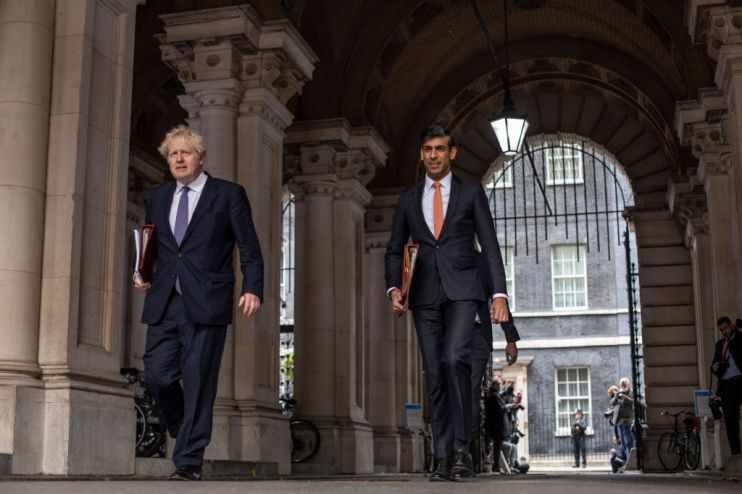Rishi Sunak vs Boris Johnson: to spend or not to spend?

Rishi Sunak has directed his energy into recasting the Treasury back to its traditional role – the guardian of the public finances.
The Chancellor notched up a substantial victory after education recovery tsar, Kevan Collins, resigned earlier this month, after his demand for £15 billion for catch-up programmes in schools was beaten down to a mere one-tenth of that by the Treasury. The missiles have continued to zoom in from all directions, however.
The main launchpad appears to be Mr Sunak’s neighbour in Downing Street, as No10 continually demands new spending commitments in a wide range of different areas. The Treasury is getting zapped across almost the entire area of government activity.
Boris Johnson wants a Marshall Plan to fund green growth in the developing world. He wants to spend huge amounts on the levelling up agenda. He appears to favour a scheme to cap care home costs which would require even greater amounts of money.
Does it actually matter? Why can’t it all be paid for by simply issuing more government debt?
Public sector net borrowing soared during the financial crisis to £160 billion in 2009. By the end of the last decade, the annual amount had been clawed back to under £50 billion. But the Covid crisis last year saw it rise to the entirely unprecedented peace time level of more than £250 billion.
Throughout the Western world governments have been running up similarly massive amounts of debt. But the markets appear to be taking this in their stride. Although yields on government bonds have risen slightly , they are still at historically low levels. Investors still seem willing to finance the debt.
There are two main problems with the policy of just letting spending continue to rip, funded by more and more debt.
These were anticipated in the 1930s not by some zealous free-market economist, but by John Maynard Keynes himself.
Keynes’ legacy has been used to justify high public spending and government deficits. True, Keynes did advocate these in the 1930s to combat the Great Depression and unemployment rates which soared well above 10 per cent in many Western countries. But he was a much more subtle economist than almost all his 21st century disciples.
In his major work, The General Theory of Employment, he acknowledged there were two potentially serious drawbacks to the policy.
As full employment approached – and the UK is currently close to such a situation – Keynes argued that any further public spending would “set up a tendency for money prices to rise without limit”. In other words, inflation would become endemic.
Even more importantly, Keynes recognised the market’s attitude to rising government debt was based on psychology rather than hard facts. In essence rising debt is fine. Until it is not. Perception is all. Once confidence is lost, interest rates can rise by large amounts very rapidly.
The Prime Minister is a gambler. But his current policies involve a huge gamble with both inflation and interest rates.
